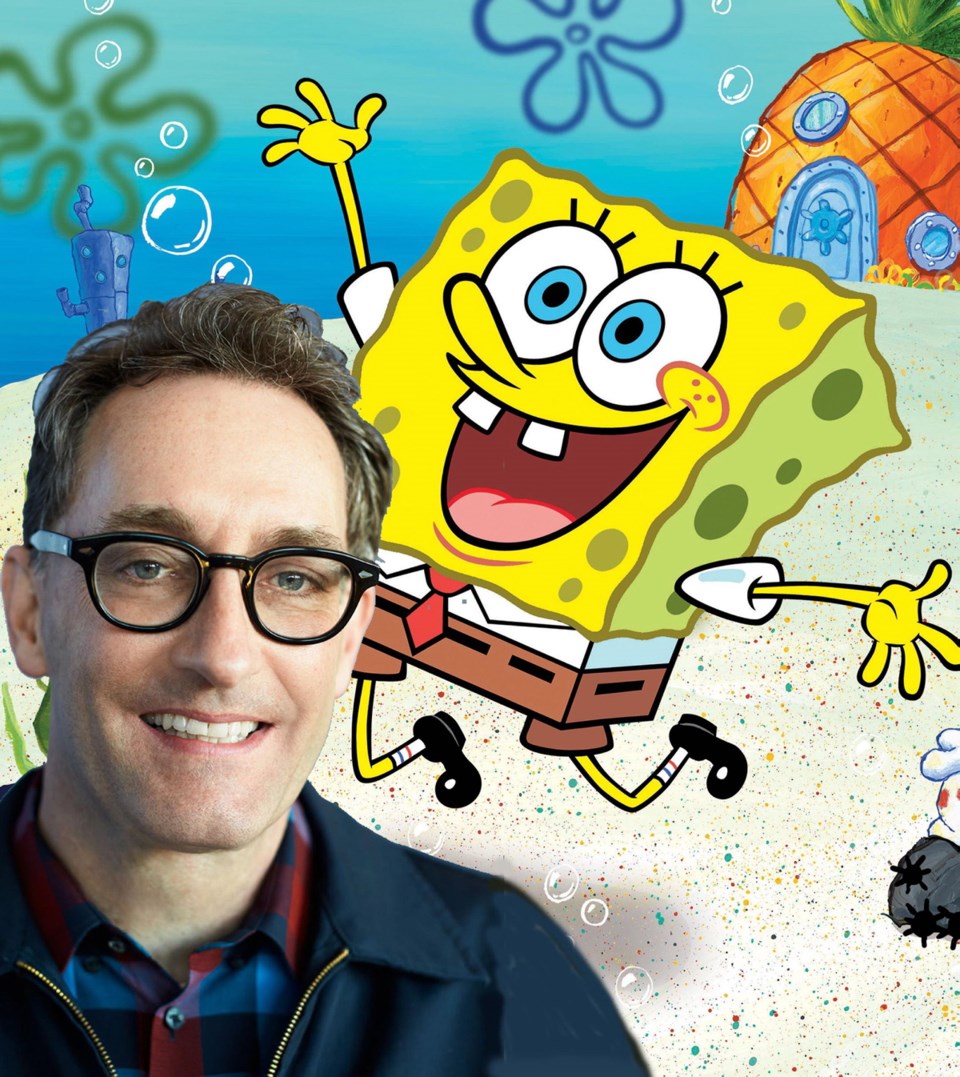LOS ANGELES — Many beginning young actors think they can worm their way into show business through voice-over work. But lending your voice to a cartoon or a goofy commercial can be more difficult than landing a speaking part on a TV series.
“It seems like a quarter of the people do the majority of the work,” says Tom Kenny, the hyperventilating SpongeBob of SpongeBob SquarePants. “It’s like being a Navy SEAL. I’m really proud to be a member of this select group of people.
“It’s really hard to bust into. I’ve done on-camera stuff and made a living as a standup comedian for years, but voice-over was what I really wanted to do. I can only speak for myself, but I know that voice-over was much harder for me to break into than standup comedy or on-camera work ... It was the hardest. I guess it’s like everything in show business, it’s gaining experience, making connections, relationships — like any freelancer’s lot in life. And it was just dumb right-place, right-time luck.”
Among voice-over talent, there are certain performers considered the top of their class. Worker beavers include Frank Welker, Billy West, Cree Summer and Peter Cullen, who toil mostly behind the cameras, manipulating their voices like gymnasts in free form. Welker, for instance, has made a career by approximating animal sounds. It’s Welker you hear when Curious George babbles or when Puss in Boots meows.
But more and more well-known actors are confiscating the mic.
Ray Romano played Manny in the Ice Age films. “It takes getting used to,” he says of voice-over. “The best thing is the fantasy of it all, and here you can relate to everybody, adults and kids. It’s timeless. It’ll last. The actual procedure for an actor is kind of hard to get used to because it’s just you in a studio ... I’ve never been in the recording studio with another actor. We’re always on other sides of the country, or this and that, and you have to do it in piecemeal.”
Patrick Warburton, who’s Joe Swanson on Family Guy, Rip Riley on Archer and on scores of video games, says he likes the ease it offers. “Voice-over work takes a couple of hours in your pajamas,” he says. “Half-hour TV is short days, so my kids see more of me than I saw of my dad. And he had an office seven minutes from our house. He was a big surgeon, had a lot on his plate, a lot of time at home dictating, and he was under a lot of stress. My kids — I’m around all the time, sometimes they wonder if I work.”
It was a revelation when Antonio Banderas stole the show as the Puss in Boots in Shrek 2 (though Welker did the meowing).
“It’s totally different than what I thought it was going to be,” says Banderas.
“For an actor like me who came here … years ago without speaking the language, the opportunity to use my voice has kind of made me proud somehow. But it’s something, a method that was very unusual from what I thought animated movies would be,” he says.
“Basically what we do is just improvise. The voice goes first and we improvise what we have as an excuse — it’s called a script — but it’s an excuse to start going somewhere. They go away after we do the first session, and then they come back months later and they show you the first stages of animation. And then they ask you what you think about where the character should go, which is very unusual for an animation movie. Then we just debate about that, and we jump into ideas that come out of the conversation. So it’s a totally different thing.”
Clancy Brown’s mellifluous base was first borrowed for the animated Gargoyles. “I only did a couple of bit parts of that,” he says. But capturing the job of Mr. Krabs on SpongeBob proved a turning point, says Clancy.
“We didn’t know it at the time, it was just a goofy thing and Nickelodeon was its own company and it was a lot of fun to be there. Still, with Mr. Krabs you try to maintain some kind of continuity and I feel silly saying, ‘Mr. Krabs would never say a thing like this.’ It’s the most stupid thing in the world that’s come out of my mouth.”
Of course, the true royals of animation are The Simpsons, the ongoing cartoon that started as short, interstitial bits on The Tracey Ullman Show in 1987. Bratty Bart Simpson is played by Nancy Cartwright, mother of two, who studied with the famous voice-over king, Daws Butler.
Originally she was supposed to read the part of Lisa, Bart’s little sister. “I looked at this character Bart, and I go, ‘Hmmmm, a 10-year-old boy, huh. Getting into trouble, huh. He’s like a go-getter. He’s like a pistol. I think I can relate to that. I like Bart. I want to do Bart.’ I did Bart, and I got Bart. Just like that.”
Dan Castellaneta, who plays the goofy Homer, says, “My wife and I were a voice-over team in Chicago. We did voice-overs for radio spots and things. When they had these little one-minute cartoons of the Simpsons on ‘The Tracey Ullman Show,’ they figured why cast another person? They had me, and Julie Kavner was also in the cast. So they said, ‘Just make them the parents.’ They did cast Yeardley Smith and Nancy as the kids.
“I would do voice-overs during the day and perform on stage at night. As an actor I was just happy to act anywhere.”



-thumb.png;w=120;h=80;mode=crop)